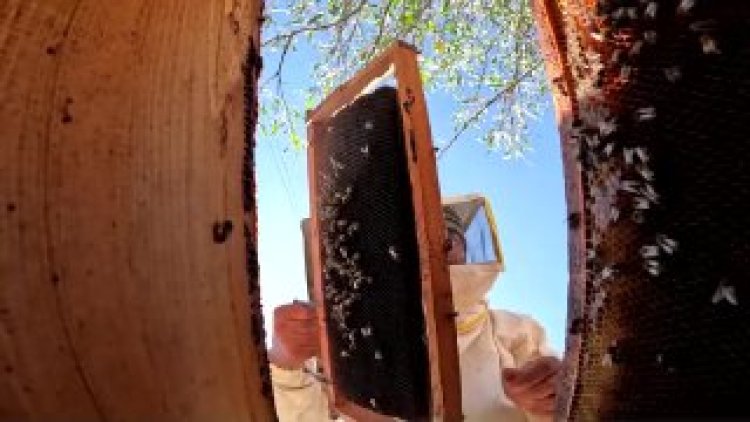Climate change threatens Tunisia’s beekeeping industry

Climate change is taking a heavy toll on Tunisia's beekeeping industry, with rising temperatures and prolonged droughts threatening bee populations and honey production across the country, local beekeepers say.
In the picturesque region of Zaghouan, beekeeper Bilel Sliman says he witnessed firsthand the devastating impact of these environmental shifts on his livelihood.
"In previous years, the climate was good and the weather was pleasant, there was a lot of rain, and the bees multiplied without any help from beekeepers. However, in recent years, specifically the last five years, there has been drought, which has exhausted the bees significantly,” said Sliman.
The consequences have been severe for Sliman's apiary, with the beekeeper reporting a loss of 65 beehives last year alone, constituting about 70 percent of his total stock.
The crisis extends beyond individual beekeepers, affecting the entire industry in Tunisia.
Wahid Ben Ferjani, head of the Agricultural Development Complex for Beekeepers in Zaghouan, said that in 2021 and 2022, the region lost about 50 percent of its beehive. Ben Ferjani attributes this to various factors including reduced rainfall, wildfires affecting tree populations, and diseases hitting eucalyptus trees, which are a source of nectar for bees.
The impact of these environmental challenges has also been reflected in diminishing honey yields and rising production costs.
As of 2023, Tunisia's beekeeping industry consists of about 13,000 beekeepers managing 305,000 beehives. Approximately 75 percent of these beekeepers have reported decreased honey production in recent years, largely due to the effects of climate change, according to the Livestock and Forage Office of the Tunisian Ministry of Agriculture.















